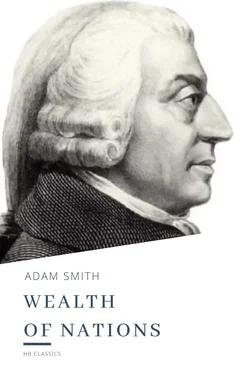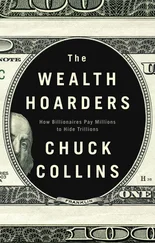In Virginia and Maryland the cultivation of tobacco is preferred, as more profitable, to that of corn. Tobacco might be cultivated with advantage through the greater part of Europe; but in almost every part of Europe it has become a principal subject of taxation, and to collect a tax from every different farm in the country where this plant might happen to be cultivated would be more difficult, it has been supposed, than to levy one upon its importation at the custom-house. The cultivation of tobacco has upon this account been most absurdly prohibited through the greater part of Europe, which necessarily gives a sort of monopoly to the countries where it is allowed; and as Virginia and Maryland produce the greatest quantity of it, they share largely, though with some competitors, in the advantage of this monopoly. The cultivation of tobacco, however, seems not to be so advantageous as that of sugar. I have never even heard of any tobacco plantation that was improved and cultivated by the capital of merchants who resided in Great Britain, and our tobacco colonies send us home no such wealthy planters as we see frequently arrive from our sugar islands. Though from the preference given in those colonies to the cultivation of tobacco above that of corn, it would appear that the effectual demand of Europe for tobacco is not completely supplied, it probably is more nearly so than that for sugar; and though the present price of tobacco is probably more than sufficient to pay the whole rent, wages, and profit necessary for preparing and bring it to market, according to the rate at which they are commonly paid in corn land, it must not be so much more as the present price of sugar. Our tobacco planters, accordingly, have shown the same fear of the superabundance of tobacco which the proprietors of the old vineyards in France have of the superabundance of wine. By act of assembly they have restrained its cultivation to six thousand plants, supposed to yield a thousand weight of tobacco, for every negro between sixteen and sixty years of age. Such a negro, over and above this quantity of tobacco, can manage, they reckon, four acres of Indian corn. To prevent the market from being overstocked, too, they have sometimes, in plentiful years, we are told by Dr. Douglas (I suspect he has been ill informed), burnt a certain quantity of tobacco for every negro, in the same manner as the Dutch are said to do of spices. If such violent methods are necessary to keep up the present price of tobacco, the superior advantage of its culture over that of corn, if it still has any, will not probably be of long continuance.
It is in this manner that the rent of the cultivated land, of which the produce is human food, regulates the rent of the greater part of other cultivated land. No particular produce can long afford less; because the land would immediately be turned to another use. And if any particular produce commonly affords more, it is because the quantity of land which can be fitted for it is too small to supply the effectual demand.
In Europe, corn is the principal produce of land which serves immediately for human food. Except in particular situations, therefore, the rent of corn land regulates in Europe that of all other cultivated land. Britain need envy neither the vineyards of France nor the olive plantations of Italy. Except in particular situations, the value of these is regulated by that of corn, in which the fertility of Britain is not much inferior to that of either of those two countries.
If in any country the common and favourite vegetable food of the people should be drawn from a plant of which the most common land, with the same or nearly the same culture, produced a much greater quantity than the most fertile does of corn, the rent of the landlord, or the surplus quantity of food which would remain to him, after paying the labour and replacing the stock of the farmer, together with its ordinary profits, would necessarily be much greater. Whatever was the rate at which labour was commonly maintained in that country, this greater surplus could always maintain a greater quantity of it, and consequently enable the landlord to purchase or command a greater quantity of it. The real value of his rent, his real power and authority, his command of the necessaries and conveniencies of life with which the labour of other people could supply him, would necessarily be much greater.
A rice field produces a much greater quantity of food than the most fertile corn field. Two crops in the year from thirty to sixty bushels each, are said to be the ordinary produce of an acre. Though its cultivation, therefore, requires more labour, a much greater surplus remains after maintaining all that labour. In those rice countries, therefore, where rice is the common and favourite vegetable food of the people, and where the cultivators are chiefly maintained with it, a greater share of this greater surplus should belong to the landlord than in corn countries. In Carolina, where the planters, as in other British colonies, are generally both farmers and landlords, and where rent consequently is confounded with profit, the cultivation of rice is found to be more profitable than that of corn, though their fields produce only one crop in the year, and though, from the prevalence of the customs of Europe, rice is not there the common and favourite vegetable food of the people.
A good rice field is a bog at all seasons, and at one season a bog covered with water. It is unfit either for corn, or pasture, or vineyard, or, indeed, for any other vegetable produce that is very useful to men; and the lands which are fit for those purposes are not fit for rice. Even in the rice countries, therefore, the rent of rice lands cannot regulate the rent of the other cultivated land, which can never be turned to that produce.
The food produced by a field of potatoes is not inferior in quantity to that produced by a field of rice, and much superior to what is produced by a field of wheat. Twelve thousand weight of potatoes from an acre of land is not a greater produce than two thousand weight of wheat. The food or solid nourishment, indeed, which can be drawn from each of those two plants, is not altogether in proportion to their weight, on account of the watery nature of potatoes. Allowing, however, half the weight of this root to go to water, a very large allowance, such an acre of potatoes will still produce six thousand weight of solid nourishment, three times the quantity produced by the acre of wheat. An acre of potatoes is cultivated with less expense than an acre of wheat; the fallow, which generally precedes the sowing of wheat, more than compensating the hoeing and other extraordinary culture which is always given to potatoes. Should this root ever become in any part of Europe, like rice in some rice countries, the common and favourite vegetable food of the people, so as to occupy the same proportion of the lands in tillage which wheat and other sorts of grain for human food do at present, the same quantity of cultivated land would maintain a much greater number of people, and the labourers being generally fed with potatoes, a greater surplus would remain after replacing all the stock and maintaining all the labour employed in cultivation. A greater share of this surplus, too, would belong to the landlord. Population would increase, and rents would rise much beyond what they are at present.
The land which is fit for potatoes is fit for almost every other useful vegetable. If they occupied the same proportion of cultivated land which corn does at present, they would regulate, in the same manner, the rent of the greater part of other cultivated land.
In some parts of Lancashire it is pretended, I have been told, that bread of oatmeal is a heartier food for labouring people than wheaten bread, and I have frequently heard the same doctrine held in Scotland. I am, however, somewhat doubtful of the truth of it. The common people in Scotland, who are fed with oatmeal, are in general neither so strong, nor so handsome as the same rank of people in England who are fed with wheaten bread. They neither work so well, nor look so well; and as there is not the same difference between the people of fashion in the two countries, experience would seem to show that the food of the common people in Scotland is not so suitable to the human constitution as that of their neighbours of the same rank in England. But it seems to be otherwise with potatoes. The chairmen, porters, and coalheavers in London, and those unfortunate women who live by prostitution, the strongest men and the most beautiful women perhaps in the British dominions, are said to be the greater part of them from the lowest rank of people in Ireland, who are generally fed with this root. No food can afford a more decisive proof of its nourishing quality, or of its being peculiarly suitable to the health of the human constitution.
Читать дальше












